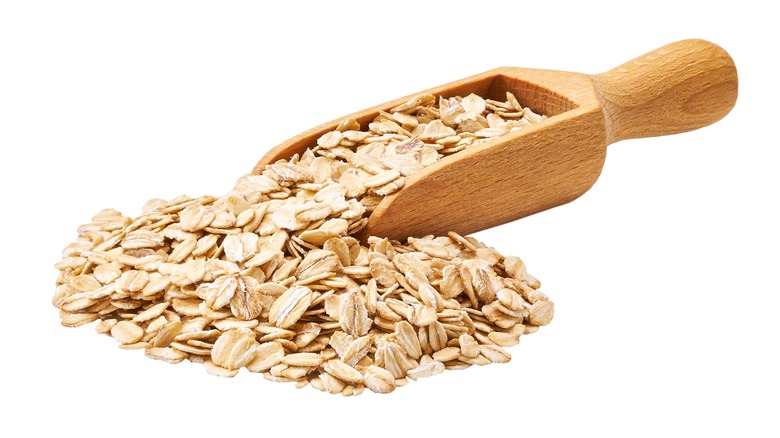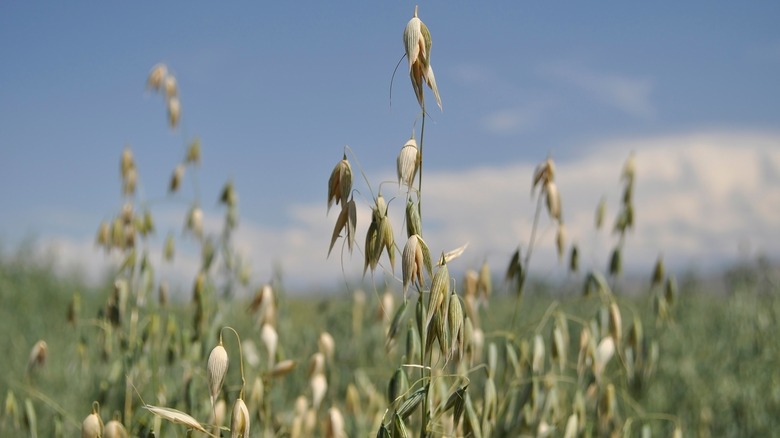Are All Oats Gluten-Free?
If you follow a gluten-free lifestyle, navigating menus and your day-to-day meals can be a bit of a task. Grocery store visits probably include scanning label after label, and tend to take a bit longer for you.
Gluten is a protein found in wheat, barley, rye, and other grains. Living up to its name, gluten acts like a glue, and is responsible for giving breads and doughs their chewy, malleable texture. Think of how if you over-mix a muffin batter, you end up with chewy muffins. All that mixing released gluten from the grain you used. While perhaps an all-too-often appointed scapegoat in the health world, some people experience bothersome — and sometimes adverse — side effects from consuming gluten (via Harvard School of Public Health).
While you are justified in lumping grains with gluten and giving them a spot on the "Do Not Eat" list, there are a handful of them that are gluten-free. Are oats (and all of their varieties) safe?
Oats make the cut, but with a caveat
Oats, in and of themselves, are gluten-free. They do not fall under wheat, barley, rye, or any combination thereof. For people avoiding gluten, they are a suitable complex carbohydrate and source of fiber and protein.
But there's a catch. Often, farmers grow oats in fields right next to other gluten-containing grains (via Medical News Today). You can't control which way the wind blows ... can you? Because of the potential for cross-contamination, it's impossible to confirm there aren't traces of gluten on those oats. Per FDA regulations, in order to be labeled "gluten-free", products must have less than 20 parts per million of gluten — that's less than 0.002%.
Bottom line, the FDA deems oats a gluten-free grain. However, those with a serious gluten allergy should stick to only products wearing that designated FDA label. Those trace amounts can add up and cross over that seemingly insignificant amount of 0.002% to potentially harmful levels (via Beyond Celiac).

